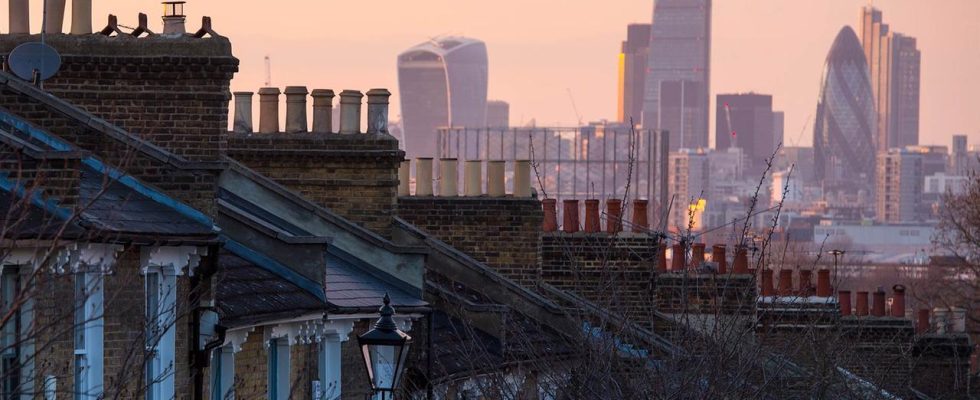A year ago, the government of then British Prime Minister Truss announced extensive tax cuts. There was chaos on the markets and Truss had to resign. The consequences are still noticeable today.
It was a remarkable appearance by former Prime Minister Liz Truss this week before guests at a think tank in London. Almost exactly a year after her fiscal policy sent markets tumbling, she was – once again – talking about lower taxes and growth for Great Britain. It was an orgy of justification: “I don’t regret my decision back then,” said the conservative politician.
“Argentina on the canal instead of Singapore on the Thames”
Their financial policy package was called a “mini budget”: tax cuts for companies and consumers, as well as an aid package for households to help with high energy prices.
And this “mini-budget” had maximum impact. There was a lack of counter-financing and the markets reacted nervously. First the pound crashed, then interest rates on government bonds went through the roof, pension funds got into difficulties, the British central bank had to intervene and announced that it would support the market with 65 billion pounds.
The attempt to unleash fireworks of economic growth with low taxes ended in disaster. The former governor of the British central bank, Mark Carney, summed it up this way: “The Brexiteers’ attempt to establish Singapore on the Thames ended with Argentina on the canal.” The South American country struggled for decades with extreme national debt, inflation and high interest rates.
High inflation and rising Real estate interest
It is difficult to quantify the extent of the financial and economic damage that Liz Truss has caused in her 49 days in office. One consequence of the market turbulence: interest rates for home financing rose massively. This is partly due to the mini budget. Many consumers are suffering from high inflation in Great Britain and rising home loan interest rates. The terms of the financing are significantly shorter in the United Kingdom than in Germany.
Times are not easy for the UK. National debt is almost 100 percent of economic output. This value is significantly lower in Germany and higher in Italy, for example. Economic growth will be 0.4 percent this year, according to the International Monetary Fund (IMF) forecast.
The effects of Brexit are still weighing on the country: The think tank Center for European Reform estimates that the United Kingdom has lost five percent of growth since leaving the European Union.
Consequences of Brexit and the pandemic
This also means that the government collected significantly less taxes; There is a lack of money for investments. The British government has just had to promise investors such as Tata and BMW subsidies so that they can invest in the United Kingdom. Great Britain is in competition with the USA and the European Union for investors; the two economic blocs have launched huge economic stimulus packages to promote “green” technologies – or are close to launching them.
“If you have to invest in productivity and automation, training and development, if you want to enable local authorities to attract donors, then you have to pump money into it,” says Peter Foster, author and journalist for the Financial Times. “And the difficulty is: there is no money.”
The UK is currently feeling the effects of Brexit and Covid, there are structural backlogs that have built up over years. And then there was Liz Truss’ mini-budget.
“It’s not something that can be fixed so quickly.”
However, the greatest damage caused by the failed financial policy was to the country’s reputation. “It’s not something that can be fixed quickly; future governments will have to work hard to fix it,” says Foster.
It’s about lost trust and reliability for investors. Because: Truss wanted to achieve what was actually impossible. She had made a decision bypassing a financial authority that actually has an eye on the effects of financial policy and is supposed to prevent turbulence.
It sounds like a conspiracy
Today, Truss says she wanted to break through the orthodoxy of recent years with the radical tax cut plans. The central bank and the Office for Budget Responsibility (OBR) simply did not support them: “The anti-growth coalition, consisting of the economic elite, media representatives and even members of the Conservative Party, is a significant force.”
That sounds like a “deep state,” like an administration riddled with opponents, it sounds like a conspiracy, all against Liz Truss. Insight looks different – but so does a comeback.

